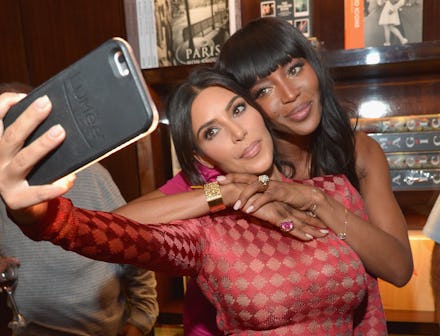Kim Kardashian West boycotted Instagram for a day. So what?

Social media users are justifiably sick of the misinformation and hate speech that proliferates on Facebook, but the biggest online hub on the planet can be darn hard to quit — especially during a pandemic, when social media is the chief way for people to safely connect. Critics are angry about Facebook’s failure to censor violent and hateful content as well as election misinformation amid widespread social unrest. So to send a message to the social media giant, celebrities announced an Instagram freeze for Wednesday, September 16, when they’d abstain from posting anything to Facebook’s sister platform. The boycott quickly drew the ire of those who see the stunt as nothing more than a showy gesture, however.
Mark Zuckerberg reigns over the biggest online hub in the world, with 2.7 billion people actively using Facebook each month. But in the name of “free speech,” the platform has been strikingly lax about policing bots and users responsible for "inciting violence, spreading racism and hate, and contributing to electoral disinformation," according to the Stop Hate for Profit campaign, which has backing from civil rights groups like the NAACP, the Anti-Defamation League, and Color Of Change.
Stop Hate for Profit orchestrated an advertiser boycott of the social giant in July, when brands like Coca-Cola, Adidas, Disney, CVS, Ford, Verizon, and others paused ads on Facebook and Instagram. Their latest campaign has the backing of A-list stars like Kim Kardashian West, Katy Perry, Leonardo DiCaprio, Naomi Campbell, Jamie Foxx, Jennifer Lawrence, Michael B. Jordan, and more.
Many of the celebs have tens of millions of followers; Kardashian West has 188 million Instagram fans alone. And Wednesday’s boycott seemed to have an impact on Facebook’s finances even before it began — once influential people announced their intentions to participate, the company’s shares slid in aftermarket trading on Tuesday and were down 1.7% ahead of the market opening on Wednesday.
Social media is undeniably one of the chief ways people get their news and information these days, and depriving Facebook and Instagram of its chief influencers is a pretty smart way to hit Zuckerburg where it hurts: in his wallet and by reducing his sphere of influence. But the freeze is also being denounced online, with critics calling for more meaningful action from influencers — like a longer period of social media abstinence, for example. The anger directed towards the Stop Hate for Profit campaign is a bit reminiscent of the reaction to #BlackoutTuesday, an Instagram trend intended to show support for the Black Lives Matter movement but was instead lambasted as performative “slacktivism.”
“These stunts are worthless if temporary and short-lived (which they always are),” tweeted Jenna Golden, the founder and president of a Washington consulting firm, succinctly summarizing the issue. “If anything, they shine a light on the fact that we cannot live without these platforms since everyone always comes back (brands included).”